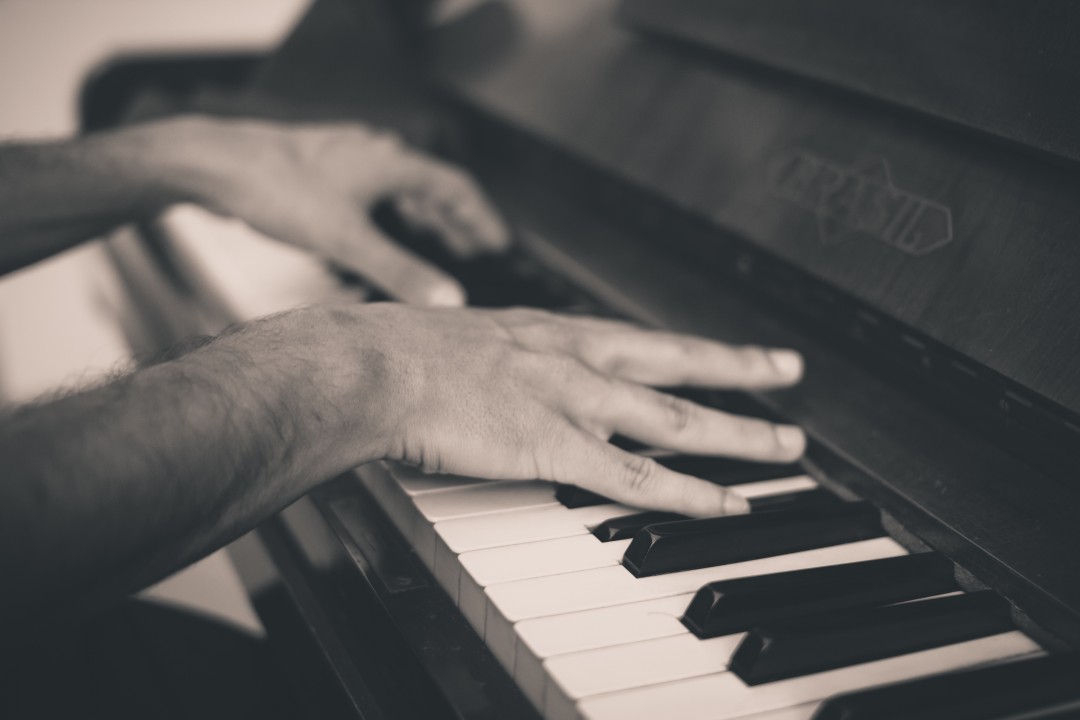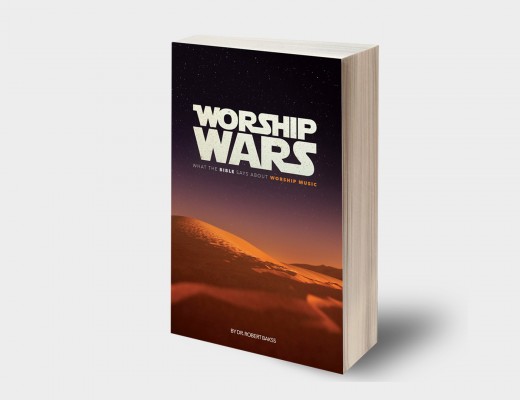I love music! I love the great variety of music the different cultures of the earth have to offer. I’ve had the privilege of hearing a Mariachi band in Mexico, Filmi music in India, and Middle Eastern Music in Israel. However, more than anything, I love music that proclaims the majesty of God and proclaims the beauty of the gospel.
This is why I love church music. Hearing the choir perform a powerful hymn, watching the praise team as they lead the congregation to worship, and listening to the instrumentalists skillfully play their various musical contraptions is so inspiring and helpful in directing my attention back to the Lord of Heaven. At our church we don’t have a large number of instruments playing weekly (primarily due to our space limitations). We have a piano, two acoustic guitars, a bass guitar, and a drum set. Occasionally we add an electric guitar, flute, harp, keyboard, or even a trumpet.
This got me thinking. What musical instruments are found in the Bible?
I. String Instruments
• The Lyre or Harp
This instrument is highly associated with a shepherd boy named David (I Samuel 16:23). But it was also used, and perhaps invented by Jubal (Genesis 4:21). Harps were present at the dedication of the wall of Jerusalem (Nehemiah 12:27). The Hebrew word is kinnor and seems to be more related to our modern guitar than to our understanding of a harp. Josephus describes the Lyre as having 10 strings and played with a pick , which seems consistent with Scripture (Psalm 144:9).
• The Psaltery
This instrument would be similar to our modern harp, larger and containing more strings than the Lyre. This elegant instrument was played at the return of the Ark to Jerusalem (II Samuel 6:5) as well as the pagan worship of Nebuchadnezzar (Daniel 3:5).
There are other stringed instruments found in the Bible but we haven’t the time to discuss each of them here. It is enough to conclude that the Lord enjoys the sound of these stringed instruments. He simply asks that we keep it fresh, play with skill, and make it loud.
Psalm 33:2-3 Praise the LORD with harp: sing unto him with the psaltery and an instrument of ten strings. Sing unto him a new song; play skilfully with a loud noise.
II. Wind Instruments
• The Horn or Trumpet
This instrument was used for various reasons. It was blown to assemble soldiers to battle (Jeremiah 4:5), sound a warning to civilians (Ezekiel 33:3-5), and will sound at the coming of Messiah (Joel 2:1). The trumpet seems more associated with times of battle (Joshua 6:20, Judges 6:34 II Samuel 15:10), than with times of worship and singing. Until we arrive once again at the arrival of the Ark brought home by David (I Chronicles 13:8). This must have been an incredible experience to watch as the children of God celebrated the Lord with song and played with “might” on many musical instruments. I Chronicles 13:8 And David and all Israel played before God with all their might, and with singing, and with harps, and with psalteries, and with timbrels, and with cymbals, and with trumpets.
• The Silver Horns
These instruments were specifically ordered by the Lord and Moses had to have them custom made (Numbers 10:2). They too were used specifically to assemble the people of God.
• The Flute, Pipe, Organ
Please don’t picture a Pipe Organ. The Pipe Organ was not developed as we understand it until the middle-ages, centuries after Christ. The flute or pipe was a simple reed indented with holes and blown. Samuel describes the music of the prophets including the pipe (I Samuel 10:5). Psalm 5 is entitled To the Chief Musician upon “Nehiloth” or flutes. Isaiah describes the flute as part of the worship celebration upon arrival in Jerusalem (Isaiah 30:29). They were used for funerals (Matthew 9:23) as well as celebrations (Matthew 11:17).
Psalm 98:4-6 Make a joyful noise unto the LORD, all the earth: make a loud noise, and rejoice, and sing praise. Sing unto the LORD with the harp; with the harp, and the voice of a psalm. With trumpets and sound of cornet make a joyful noise before the LORD, the King.
III. Percussion Instruments
• The Timbrel (or drum)
This percussion instrument was used heavily in the Old Testament. Miriam used it as she lead the people of God in worship after the crossing of the Red Sea (Exodus 15:20). Jephthah’s daughter used it to celebrate her father’s arrival at home (Judges 11:34). The women of the city used it, and other musical instruments) when David returned with the Ark (I Samuel 18:6). And the psalmist encouraged God’s people to use in worship at the temple (Psalm 68:25).
So what was the Timbrel? The Hebrew word is “toph” and is translated as timbrel, tabret, or tambourine. It could have resembled the modern tambourine used by folk singers of the 1960s. However, according to Merrill Unger, “Some scholars think it was a drum, like a tom-tom, made ‘of a wooden hoop and very probably two sticks, without any jingling contrivance or sticks’ (see Kurt Sachs, A History of Musical Instruments [1940]; Sol B. Finesinger, ‘Musical Instruments in the O.T.,’ Hebrew Union College Annual 3 [1926]: 21-75).”
• The Cornet
The closest musical instrument we would have to relate would be the maraca. The Hebrew word for cornet is derived from the word meaning to shake. “Sachs and Finesinger are both of the opinion that this instrument was the sistrum, an instrument common in Egypt and early Babylonia. It was a rattle-type noisemaker compsed of a handle with a metal loop at one end.”
II Samuel 6:5 And David and all the house of Israel played before the LORD on all manner of instruments made of fir wood, even on harps, and on psalteries, and on timbrels, and on cornets, and on cymbals.
• The Cymbals
David specifically assigned certain Levites to play the cymbals in worship to the Lord (I Chronicles 15:16). Ezra assigned certain sons of Aseph to praise the Lord with the sounding of the cymbals at the laying of the foundation of the new temple (Ezra 3:10). And once again, when David returned with the Ark or the Lord to Jerusalem the inhabitants of Jerusalem could likely hear them coming form miles away as they clashed their cymbals for the Lord (II Samuel 6:5).
Read the words of the Lord in this final psalm of God’s inspired song book:
Psalm 150:1-6 Praise ye the LORD. Praise God in his sanctuary: Praise him in the firmament of his power.
2 Praise him for his mighty acts: Praise him according to his excellent greatness.
3 Praise him with the sound of the trumpet: Praise him with the psaltery and harp.
4 Praise him with the timbrel and dance: Praise him with stringed instruments and organs.
5 Praise him upon the loud cymbals: Praise him upon the high sounding cymbals.
6 Let every thing that hath breath praise the LORD. Praise ye the LORD.
If you could play any instrument for the Lord, which would you choose? What is your favorite musical instrument in your church? Comment Below:



No Comments